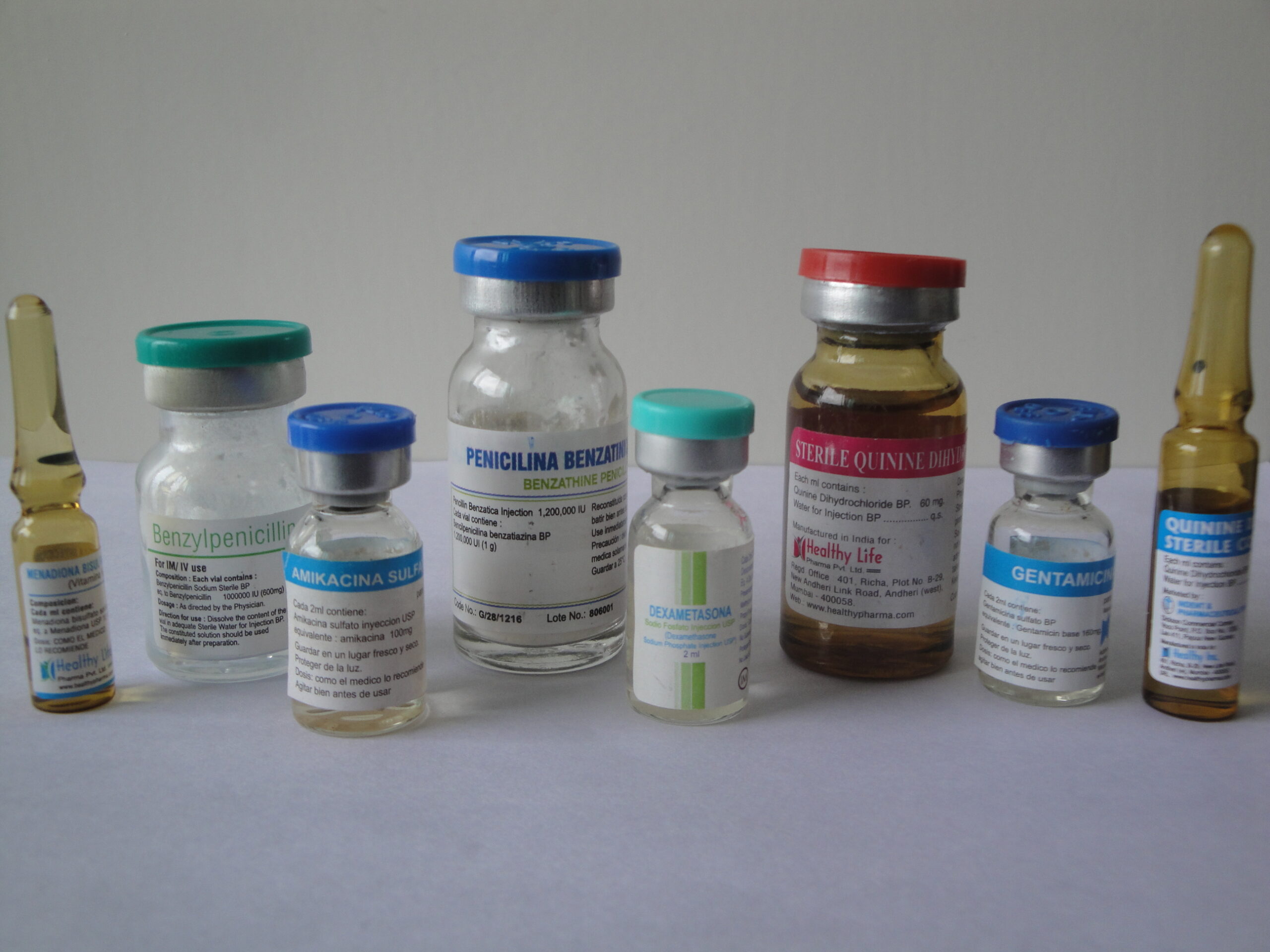Description
Dexamethasone injection
Dexamethasone is a corticosteroid medication that has anti-inflammatory and immunosuppressant properties. It is used to treat a variety of conditions, including inflammatory disorders, autoimmune diseases, and certain types of cancer. The 4mg injection of dexamethasone is a specific dosage that may be prescribed by a healthcare professional based on the patient’s condition.
Here are some general considerations about dexamethasone 4mg injection:
Inflammatory Conditions: Dexamethasone is often prescribed to reduce inflammation in conditions such as arthritis, allergic reactions, asthma, and skin conditions.
Immunosuppression: Dexamethasone is used to suppress the immune system, which can be beneficial in conditions where the immune system is overactive, such as certain autoimmune diseases.
Cancer Treatment: In some cases, dexamethasone may be used as part of cancer treatment to reduce inflammation and manage side effects of chemotherapy.
Dosage and Administration: The dosage and frequency of dexamethasone injections depend on the specific condition being treated and the individual patient’s needs. It is administered by a healthcare professional, typically as an intramuscular (IM) or intravenous (IV) injection.
Side Effects: Like any medication, dexamethasone can have side effects. Common side effects may include increased appetite, weight gain, insomnia, mood changes, and fluid retention. Long-term use or high doses may lead to more serious side effects, including bone loss, increased blood sugar levels, and increased risk of infections.
Caution and Monitoring: Dexamethasone should be used with caution in certain populations, such as those with diabetes, hypertension, or osteoporosis. Regular monitoring of blood glucose, blood pressure, and bone density may be necessary during prolonged treatment.
It’s crucial to follow the prescribed dosage and schedule provided by your healthcare provider. If you have any questions or concerns about dexamethasone or its administration, it’s important to discuss them with your healthcare professional, who can provide personalized advice based on your medical history and condition.
Dexamethasone is a corticosteroid medication used for its anti-inflammatory and immunosuppressive properties. It is available in various forms, including tablets, injections, creams, and eye drops.
A 4mg injection of dexamethasone is a relatively common dosage used for various conditions such as allergic reactions, severe inflammation, autoimmune disorders, certain cancers, and other conditions where suppression of the immune system or reduction of inflammation is required.
It’s important to note that dexamethasone injections should only be administered by healthcare professionals and under proper medical supervision due to potential side effects and interactions with other medications. Dosage and frequency of administration depend on the specific condition being treated and the individual patient’s needs, so always follow the instructions provided by your healthcare provider.
Dexamethasone is a corticosteroid medication that has anti-inflammatory and immunosuppressive properties. It is used to treat a variety of conditions, including inflammatory disorders, autoimmune diseases, and certain types of cancer. Dexamethasone can be administered in various forms, including oral tablets, intravenous (IV) injection, and intramuscular (IM) injection.
A 4mg injection of dexamethasone is a specific dosage of the medication. The exact dosage and form of administration depend on the condition being treated, the severity of the condition, and the individual patient’s needs. Dexamethasone injections are often used in situations where a rapid and potent anti-inflammatory effect is required.
It’s important to note that the use of dexamethasone should be under the supervision of a healthcare professional, and the dosage and duration of treatment should be determined by a doctor based on the specific medical condition being addressed.
Common side effects of dexamethasone may include increased appetite, weight gain, fluid retention, mood changes, and changes in blood sugar levels. Long-term or high-dose use of corticosteroids can be associated with more serious side effects, so it’s crucial to follow the prescribed treatment plan and attend regular check-ups with a healthcare provider. If you have any concerns or questions about dexamethasone or its administration, it’s best to consult with your healthcare provider for personalized advice.
Dexamethasone is a corticosteroid medication that is commonly used to reduce inflammation and suppress the immune system. It can be administered through various routes, including oral, intravenous (IV), intramuscular (IM), and intra-articular (injection into a joint).
When dexamethasone is administered as a 4mg injection, it typically refers to an intramuscular or intravenous injection. This form of administration is often used for conditions where a rapid and potent anti-inflammatory response is required. Some common uses of dexamethasone injections include:
Inflammatory Conditions: Dexamethasone injections may be prescribed for the treatment of inflammatory conditions such as rheumatoid arthritis, inflammatory joint diseases, or severe allergic reactions.
Severe Respiratory Conditions: In certain cases, dexamethasone injections may be used to manage severe respiratory conditions, such as acute exacerbations of asthma or chronic obstructive pulmonary disease (COPD).




